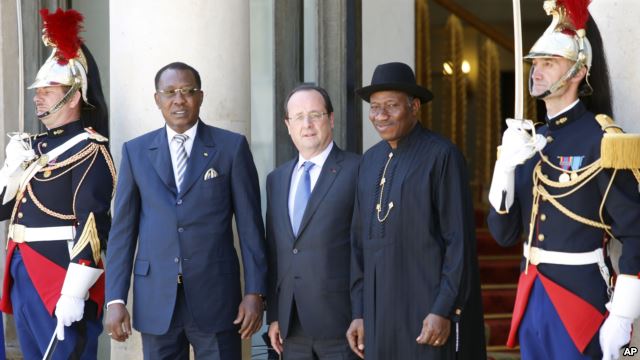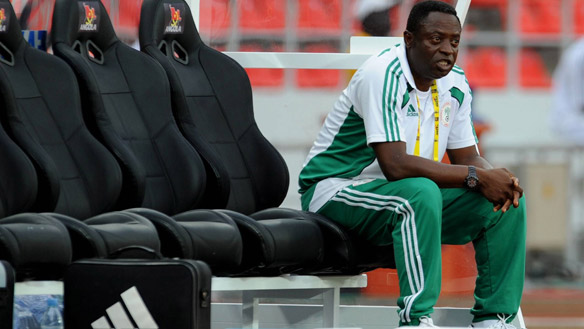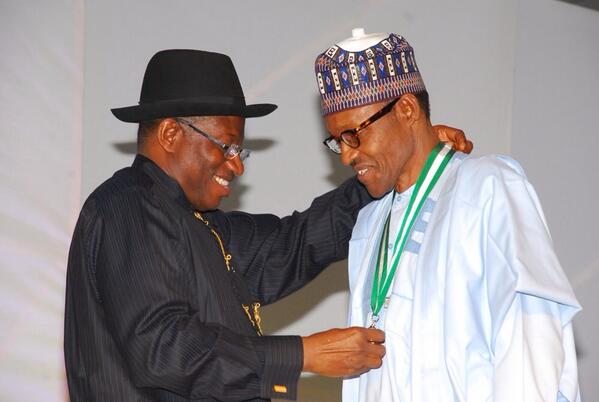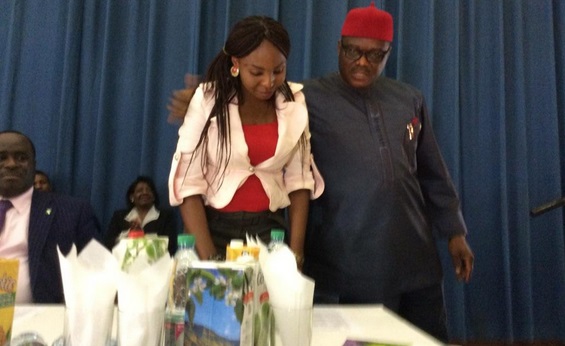Mrs. Oby Ezekwesili, former minister of education and a leading figure in the Bring Back Our Girls movement, called me on Friday afternoon, clearly desperate to hear some good news about the Chibok schoolgirls. She had heard that the girls, kidnapped by Boko Haram since April, were about to be released under a ceasefire agreement between the government and the insurgents. Immediately I saw her call, I knew what it was about.
“Simon, is it true?” she asked, and for one second you would think I actually held the key to the truth.
“Well, the chief of defence staff himself addressed the media to announce it, so it must be true,” I said, authoritatively.
“But we have heard all this before, Simon, haven’t we? How do we know it is true this time around? Will these girls return?” she said. By now, her voice was cracking, and I sensed she had broken down in tears.
Advertisement
I, too, was getting emotional. Earlier in the day, I had looked at the still images of the girls from a Boko Haram video and said to myself: “God, where are these girls? Will they ever return home? What is going on in the heads of their parents and siblings right now?”
The reported peace deal, or ceasefire agreement, means different things to Nigerians. To Ezekwesili, it is an opportunity to see the safe return of the teenagers who are thought to be 219 in all. Anything that would bring them back alive is welcome. To many, this is the beginning of a negotiated end to the insurgency and other evils associated with it. They think that for the insurgents, or some of them, to be ready to dialogue at all is a good sign. To the soldiers on the warfront and their families, this could be a big relief after so many deaths on the battlefield.
In some circles, however, a ceasefire represents the ultimate surrender of the Nigerian state to terrorism, a huge dent on national ego and a sign of how weak the Nigerian government has become. To the military hierarchy, this may be viewed as a humiliation, for how can we be discussing with terrorists who deserve nothing but death after all the horror they have inflicted on soldiers and civilians? I also heard several comments that President Goodluck Jonathan agreed to the peace deal because he is desperate to be returned to office next year. We all have our opinions, of course.
Advertisement
My opinion on this, which I started expressing in the last four years, is that we cannot defeat Boko Haram with military force alone. In a series of articles that I did on the insurgency, I camped with those who wanted government to engage in dialogue, offer amnesty to those who are ready to defect from Boko Haram, and engage those who refuse to surrender in military action. To be honest, I was only being realistic.
We were fighting a war that we were ill-prepared for, further complicated by its unconventional nature. That the insurgents probably enjoyed sympathy from some security, political and religious leaders also made it difficult for Nigeria. This is to say nothing about the state of the Nigerian armed forces, the difficult terrain in the north-east and the vulnerability of several towns and villages to the insurgency. I clearly favoured a negotiated end to the militancy. There is certainly a downside to negotiation ─ it could offer a perverse incentive for many groups to spring up, but the secret would be to improve our security capacity to nip such things in the bud.
My viewpoint, first expressed in 2011, was rejected by many readers. Some said I was out of my mind; many said I was playing to the gallery; several others said I was trying to be politically correct. A reader accused me of always pandering to “these Northerners”. Another reader warned me not to compare Niger Delta militants to Boko Haram. “The militants only killed soldiers. Boko Haram terrorists are killing civilians,” a reader wrote in an email. The consensus among those who opposed my view was: we must deploy military action to crush Boko Haram.
Fellow Nigerians, between the time I wrote that article and today, the militants have gone from hit-and-run attacks, in form of bombings, to putting boots on the ground, capturing towns and villages and hoisting their flags and proclaiming a caliphate. They have killed an emir. They have killed thousands. They have bombed churches and mosques. They have killed hundreds of soldiers. They have kidnapped schoolgirls and women. They have destroyed whole villages. They have acquired surface-to-air missiles. They have brought down a fighter jet. Imagine if we had pursued a peace deal years ago. Imagine the calamity we could have saved this nation.
Advertisement
For those who are still opposed to a peace deal, maybe they need to project into the next three years. It is either of two things ─ we successfully wipe out the terrorists and there will be peace forever, or the insurgency grows worse and we lose the whole of Borno and Yobe states to Boko Haram. Have opponents of a peace deal ever wondered why the more we say we have killed the terrorists, the more they come at us? As I write this, many Borno villages and towns are still under Boko Haram. If military action was that easy, we would not be here discussing ceasefire.
If indeed we are able to reach a ceasefire, it will offer us a great opportunity to develop a comprehensive plan to secure our territory. We need to re-appraise our current approach, retool the military, re-organise our border patrol mechanism and generally improve the capacity of the state to tackle insurgency. Niger Delta militants and Boko Haram have proved to the world that our military capacity is highly limited, and we need to face that fact and act accordingly.
Assuming the ceasefire deal works out (some Boko Haram factions, I understand, are not a party to it), we must change tact. The National Security Adviser, Col. Sambo Dasuki (rtd) has already given us a few hints. We must get ready to rehabilitate the insurgents who come forward to surrender their weapons. We must develop a counter message to the doctrine of religious hate and extremism. We must develop early warning mechanisms and legal frameworks to deal with preachers and religious leaders who incite their followers to murder. Ultimately, though, President Jonathan must fast-track his intervention programmes to deliver skills and livelihoods to millions of unemployed youths.
Those who oppose ceasefire, dialogue, peace deal and amnesty need to enlighten us on how we can defeat an idea with military action. The US and its allies have been bombing and bombarding the Taliban, Al-Qaeda and ISIS, but the very idea of fundamentalism remains alive and kicking. It keeps producing terror gangs in different shapes and forms. This can only show that something deeper and broader is needed to counter this ideology. To think military tanks and fighter jets alone will end terrorism is very unrealistic.
Advertisement
AND FOUR OTHER THINGS…
DUBAI DEATHS
When sportscaster, Aisha Falode, cried out that her son, Toba, had been murdered in Dubai earlier this year, she said it was becoming a common occurrence, but nobody listened to her. Officials at the Nigerian embassy in the United Arab Emirates even warned her to be careful with her agitations in order not to jeopardise a bilateral agreement the two countries were about to sign. Such wickedness. Now, another Nigerian has died in suspicious circumstances in Dubai. Oyamuyefa, son of former Bayelsa governor, Chief DSP Alamieyeseigha, is the latest casualty. Young Nigerians are routinely dying abroad. Co-incidence?
Advertisement
BUHARI VS JONATHAN
With due respect to Alhaji Atiku Abubakar, it is increasingly looking like the 2015 presidential election is going to be a rematch between President Goodluck Jonathan and Major-Gen. Muhammadu Buhari. Both of them squared up in 2011. They are exchanging brickbats again. Buhari, at his declaration on Wednesday, said economy was going down. Manufacturing, agriculture and power supply were “going down”, he said. Jonathan’s men have swiftly replied, citing facts and figures to counter his claims. I’m praying fervently that the presidential campaign will be healthy and will be based on issues with concrete evidence ─ and in good spirit. Amen.
Advertisement
EBOLA SCARE
Guyana has placed a travel ban on Nigerians to protect its citizens from Ebola infection. Trinidad and Tobago, another Caribbean country, has followed suit. Is it right? Is it wrong? Some will argue that if Nigeria had taken a similar measure, Patrick Sawyer would not have brought Ebola to the country all the way from Liberia. Others will argue that since Nigeria was no longer having any Ebola case, and will soon be certified so, those countries should not have included us in the blacklist. Whatever, why didn’t these Caribbean countries also place a travel ban on the US? Lol.
Advertisement
KESHI’S EXIT
The sacking of Super Eagles’ coach, Stephen Keshi, was a bit of a surprise to me. He looked irremovable! I’ve adored Keshi all my life, but he lost me with his ‘resignation’ after winning the Africa Cup of Nations in 2013. Again, he ‘resigned’ after the World Cup in Brazil and the drama continued. Keshi somehow made it look like the world revolves around him ─ the prima donna always reminding us that several countries are begging to hire him as their coach. What was that about? As it has turned out, we now know one of those heavyweight countries. Ethiopia.
Please follow me on Twitter @simonkolawole
1 comments








Nice 1